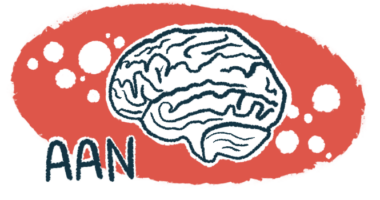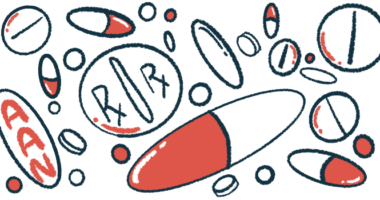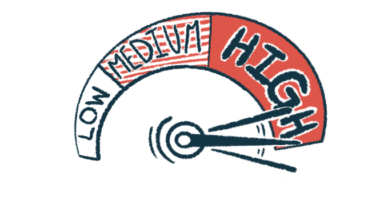Voyager Therapeutics Announces Promising Animal Study Data of VY-SOD102 for ALS

Voyager Therapeutics’ experimental therapy VY-SOD102 shows promise for treating patients with familial amyotrophic lateral sclerosis (ALS) caused by mutations in the superoxide dismutase 1 (SOD1) gene, according to results in animal models.
The preclinical data were presented at the Congress of the European Society of Gene and Cell Therapy (ESGCT), Oct. 16-19 in Lausanne, Switzerland.
About 20 percent of familial, or inherited, ALS cases worldwide are caused by mutations in the SOD1 gene. These mutations result in the production of toxic SOD1 enzymes, which lead to the progressive loss of motor nerve cells in the brain and the spinal cord.
Several studies have shown that reducing the levels of SOD1 in mice with SOD1 mutations — used as a model of SOD1-associated ALS — reduces nerve cell damage, improves their motor function, and prolongs their survival.
Thus, researchers have been working on the development of therapeutic approaches to reduce the levels of SOD1 in patients with SOD1-associated ALS.
VY-SOD102 is a candidate therapy developed by Voyager to reduce the production of SOD1 through an RNA interference (RNAi) approach.
RNAi is a natural process of gene silencing that regulates gene expression, in which small interfering RNA (siRNA) molecules bind to a specific messenger RNA (mRNA) — a molecule generated from DNA that guides the production of a specific protein — targeting it for destruction, ultimately preventing the production of that protein.
Since specific siRNA molecules can be designed for any given gene and a single siRNA molecule is able to silence many target mRNAs, RNAi therapy has the potential to prevent or reverse neurodegeneration in familial ALS.
VY-SOD102 consists of siRNA molecules designed to target the mRNA of the SOD1 gene that are delivered through a modified and harmless adeno-associated virus (AAV).
Voyager evaluated whether VY-SOD102 administration was safe and significantly reduced the mRNA levels, or the expression, of SOD1 in mice and Gottingen mini-pigs.
The results were presented in a poster titled “Robust SOD1 knockdown in large mammal spinal cord using a novel delivery paradigm with AAV gene therapy targeting SOD1 for the treatment of SOD1-ALS.”
Four injections of VY-SOD102 directly into the brain of mice genetically modified to produce the human SOD1 enzyme significantly reduced the mRNA levels of human SOD1 in the brain.
Next, researchers administered a single dose of VY-SOD102 directly into the cervical spinal cord of Gottingen mini-pigs, which have a spinal cord with a length and diameter similar to those of humans.
This delivery approach, which was optimized as part of the company’s latest efforts in optimizing the delivery method of therapies in ALS, resulted in a significant and robust reduction of SOD1 mRNA levels throughout the length of the spinal cord, with no safety concerns.
Near the site of cervical injection, VY-SOD102 suppressed SOD1 expression by an average of 82%, while the cervical region showed a 70% reduction, the thoracic region a 50% reduction, and the lumbar region a 22% reduction in SOD1 mRNA levels.
Since the cervical and thoracic regions are critical for respiratory function, the results suggest that VY-SOD102 could reduce or prevent the breathing problems associated with neurodegeneration in ALS.
The company noted that these findings support the use of VY-SOD102 as a potential approach for the treatment of familial ALS caused by SOD1 mutations, using their new delivery method to the spinal cord.
Also, additional preclinical studies on VY-SOD102 are already underway to support the submission of an investigational new drug (IND) application in 2019.
At the congress, Voyager also presented positive preclinical data on its candidate therapy VY-HTT01 for the treatment of Huntington’s disease, which also is based on RNAi delivered through an AAV.
“We are very excited by the robust reductions of disease-causing gene expression that were achieved as part of our latest delivery optimization efforts in both our Huntington’s disease and ALS programs,” Dinah Sah, PhD, Voyager’s chief scientific officer, said in a press release.






